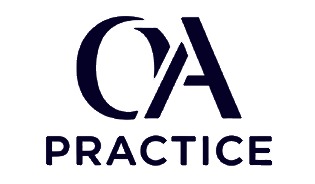D570 Cognitive Psychology - Set 3 - Part 1
Test your knowledge of technical writing concepts with these practice questions. Each question includes detailed explanations to help you understand the correct answers.
Question 1: During conversation, speakers unconsciously coordinate their speech patterns and grammatical structures with their partners. This phenomenon of linguistic alignment demonstrates which principle of social cognition?
Question 2: A student studies in the library and performs poorly when tested in a different classroom. This demonstrates that memory retrieval benefits from which principle?
Question 3: Sperling's whole report procedure showed that participants could only report about four items from briefly presented arrays. However, his partial report procedure revealed what?
Question 4: Wundt established the first psychology laboratory and used introspection to study consciousness. His approach of breaking down mental processes into basic elements exemplified which theoretical perspective?
Question 5: Patients with anterograde amnesia can learn new skills but cannot form new episodic memories. This dissociation reveals that skill learning depends on which memory system?
Question 6: Chomsky argued that children acquire language too quickly and uniformly to learn through reinforcement alone. He proposed that humans are born with what?
Question 7: The McGurk effect shows that seeing lip movements influences what syllable people hear. This phenomenon demonstrates that speech perception involves which process?
Question 8: In problem-solving research, functional fixedness prevents people from seeing novel uses for familiar objects. Overcoming this barrier requires which cognitive process?
Question 9: Autobiographical memories from adolescence are particularly vivid and numerous, creating the reminiscence bump. The cultural life script hypothesis attributes this to what?
Question 10: Strayer's research on cell phone use while driving revealed severe performance impairments. These findings demonstrate that attention has which fundamental characteristic?
Question 11: The tip-of-the-tongue phenomenon occurs when people feel they know information but cannot retrieve it. This experience provides evidence for which memory principle?
Question 12: Visual imagery experiments show that scanning time increases with distance in mental maps. Pylyshyn criticized these findings arguing that participants use what?
Question 13: Babies show surprise when objects appear to pass through solid barriers, revealing early understanding of physical laws. This research method using looking time measures what?
Question 14: Luchins's water jar problems demonstrated that previous solution methods can create mental sets. Participants who solved similar problems first showed which tendency?
Question 15: James proposed that consciousness is like a stream, continuous and ever-changing rather than composed of discrete elements. This view contrasted with which approach?
Question 16: Neuroimaging reveals that the default mode network becomes active during rest and mind-wandering. This network's activation pattern suggests it supports which cognitive function?
Question 17: Donders used reaction time differences between simple and choice tasks to estimate mental processing time. His subtraction method assumed that cognitive processes are what?
Question 18: Schema theory explains how prior knowledge influences memory, sometimes causing distortions. Bartlett's "War of the Ghosts" study demonstrated that unfamiliar stories become what?
Question 19: Hierarchical network models proposed that concepts are organized in tree-like structures with property inheritance. Collins and Quillian's model predicted that verification time depends on what?
Question 20: Metacognitive illusions occur when people misjudge their own learning or comprehension. The illusion of knowing while reading demonstrates that metacognitive monitoring can be what?
Need Guaranteed Results?
Our exam support service guarantees you'll pass your OA on the first attempt. Pay only after you pass!
Get Exam Support